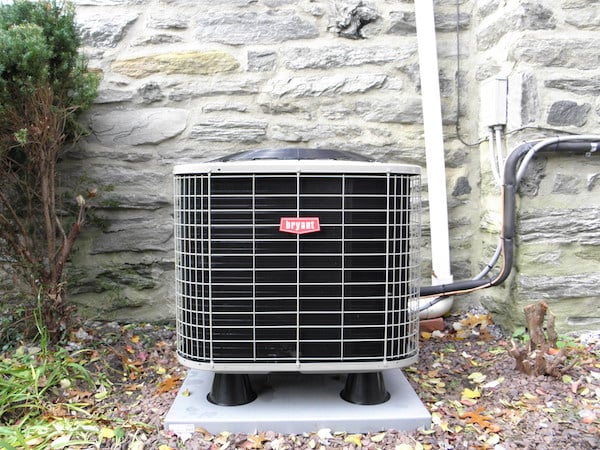
Depending on the area where you live, there may not be a long period of time each year where your home requires constant heat or constant cooling. For most of us, however, annual temperature changes are marked enough that we need a little of both. Instead of having two separate units for each task, a heat pump is designed to heat your home during cooler months and cool it during the summer.
How a Heat Pump Works
Heat pumps transfer heat from one place to another, providing both heating and cooling. They work on the fundamental principle that heat exists in air even at extremely low temperatures. In the winter, a heat pump extracts heat from outside air and delivers it indoors. To cool a house on hot summer days, it works in reverse, extracting heat from room air and pumping it outdoors.
Heat pumps give off less heat at one time than a conventional gas furnace. This means they offer a mellower type of heat, stay on longer, and circulate more air throughout the house. They’re controlled by the same type of thermostat used for forced-air heating systems. On really cold days, a heat pump must work especially hard to collect heat. During these times, a supplemental heater switches on to boost warmth. Some heat pumps can heat your water, too. New thermal storage units even store heat and cold, collecting it during non-peak hours for peak-hour use.
Heat Pump Installation
If you live in a mild to moderate climate, heat pump installation is a viable solution to both your heating and cooling needs. Those who live in very cold climates will definitely need more heating power than most heat pump units can provide, and will need to opt for a conventional furnace or boiler. Heat pump installation is much like central air conditioning installation. Like the condenser for an AC system, your heat pump will be placed outside and connected to ductwork all around your home. You might already have suitable ductwork in place, which can help justify the heat pump installation cost.
Ready to start your heat pump?
Find ProsBenefits of Heat Pumps
The biggest benefit of having a heat pump rather than a separate condenser and furnace/boiler system comes in the upkeep. Having only one unit to maintain means lower repair costs and less work in general. Electric heat pumps are more energy efficient than their condenser counterparts because of how they operate. If you really want to heat and cool cleanly and “greenly”, consider installing a geo-thermal heat pump.
Heat pumps can also control humidity better than some traditional air conditioning units, meaning that the air in your home during the summer will be less muggy and more comfortable. Additionally, heat pump installation in a mild or moderate environment makes a lot of sense as you probably won’t need near as much heating or cooling power as a homeowner in a harsher climate. Installing a whole air conditioning system or furnace system that will only be used sparingly is a huge expense. With a heat pump, you’ll be comfortable no matter what time of year it is, without spending a bundle on two separate systems!
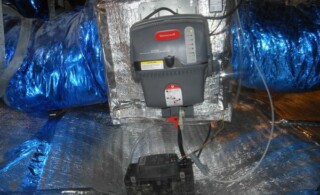 Whole House Humidifiers
Whole House Humidifiers 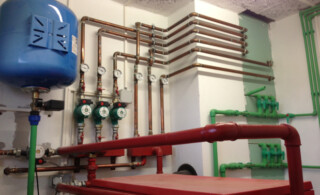 Choosing Green: Boilers and Radiator Heating Systems
Choosing Green: Boilers and Radiator Heating Systems 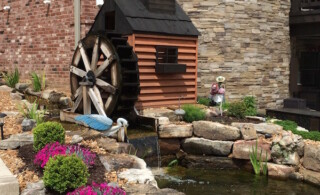 Air Conditioner Covers
Air Conditioner Covers  Consider Wood-Burning Furnaces
Consider Wood-Burning Furnaces 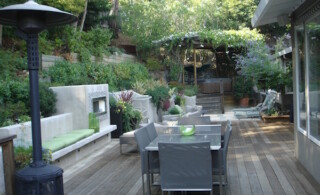 Outdoor Heaters: a Refuge from the Cold
Outdoor Heaters: a Refuge from the Cold 

Are You Familiar With This Topic? Share Your Experience.